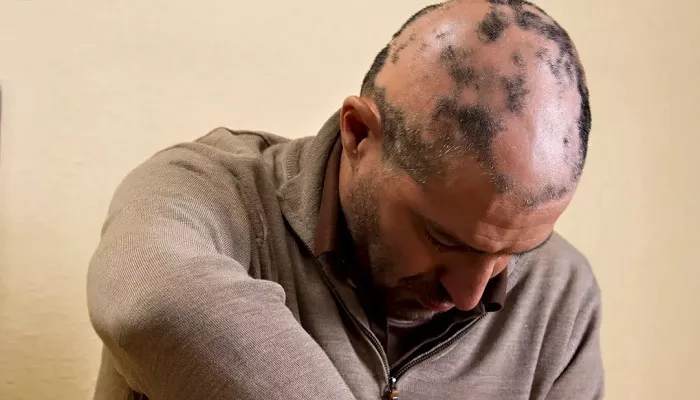Hair is often tied to identity, confidence, and self-image. So when an autoimmune condition like alopecia areata causes sudden hair loss, the emotional toll can be significant. According to research, individuals with alopecia areata are 30% to 38% more likely to be diagnosed with depression than those without the condition.
Dr. Stephanie Trovato, a dermatologist, explains that the mental health burden of alopecia areata can manifest as anxiety, low self-esteem, and even social withdrawal.
The Emotional Toll of Hair Loss
Living with alopecia areata can affect your confidence, daily routines, and social life.
“People with alopecia areata often report emotional and social challenges,” says Dr. Trovato. “Some may spend extra time covering up their hair loss out of fear of judgment or uncomfortable stares.”
This emotional strain can become a vicious cycle: stress and anxiety may trigger flare-ups, leading to further hair loss, which in turn causes more distress.
Coping Strategies for Better Mental Health
While alopecia areata is a physical condition, managing your emotional response is just as crucial. Here are several expert-backed strategies:
1. Prioritize Relaxation
Finding time for stress-relieving activities can help stabilize your immune system.
Try:
Reading a book
Taking a walk in nature
Listening to music or a podcast
Taking a warm bath
Cuddling with your pet
Enjoying a favorite hobby
2. Practice Meditation
Meditation and mindfulness techniques help manage negative thoughts and bring your attention back to the present.
Options include:
Mindfulness or breath meditation
Guided imagery
Tai chi or yoga nidra
Walking or forest meditation
Sleep-focused meditation
3. Connect with Support Groups
Being part of a support group, either locally or online, can help you feel less alone.
Groups provide a space to:
Share coping tips
Gain emotional support
Learn from others’ experiences
Check out resources from the National Alopecia Areata Foundation (NAAF) or ask your healthcare provider about local groups.
4. Make Healthy Lifestyle Changes
Your overall health affects your immune function. Help your body by:
Eating a balanced diet rich in whole foods
Drinking plenty of water
Exercising regularly
Getting quality sleep
5. Speak with a Mental Health Professional
If your anxiety or sadness becomes overwhelming, therapy can help you build resilience and coping skills.
“A mental health professional can guide you in managing emotional distress tied to chronic conditions like alopecia,” Dr. Trovato says.
Bottom Line
Alopecia areata isn’t just skin deep. The emotional and psychological impact can be profound—but it doesn’t have to be permanent.
“Because hair is tied so closely to identity, its loss can feel like a loss of self,” says Dr. Trovato. “But with support, stress management, and lifestyle adjustments, many people learn to thrive despite the condition.”
Remember: You’re not alone—and help is available.
Related Topics:
- 8 Daily Habits That Secretly Damage Your Skin and Hair
- Hair Health Breakthrough: Natural Compounds May Stimulate Growth
- Deobandi Cleric Declares Wigs, Tattoos Against Sharia


